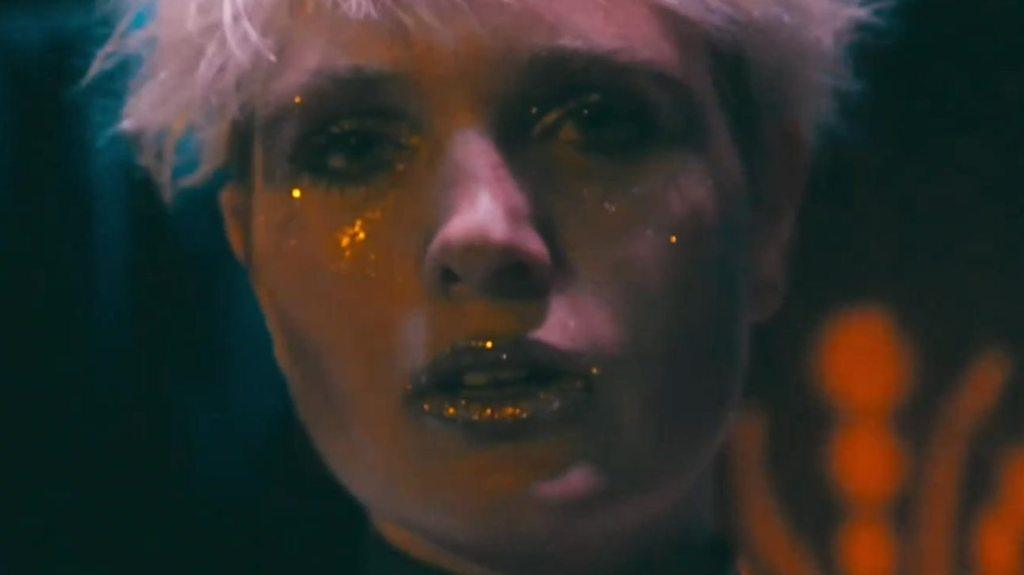Printworks: Final show for famous dance music venue
- Published
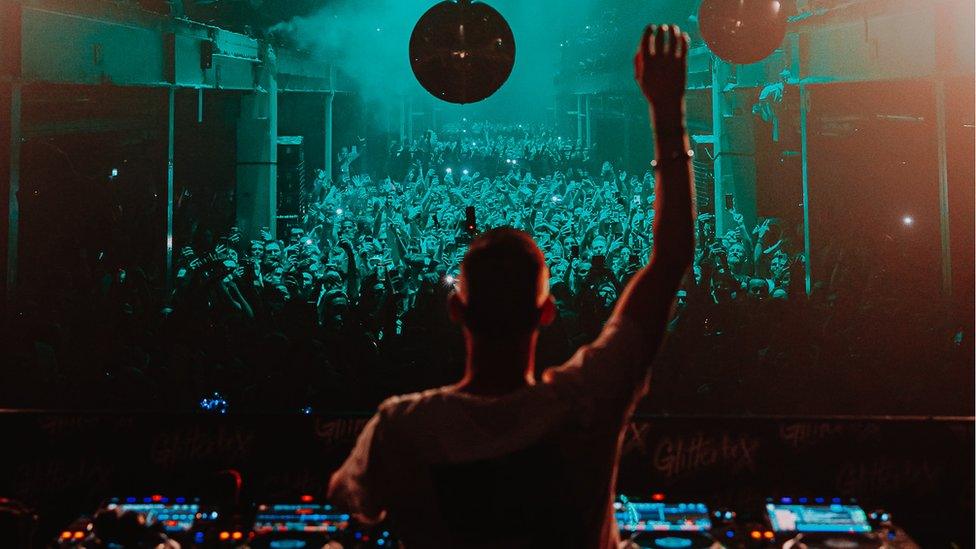
Printworks is closing to make way for office space
One of the UK's biggest and most well-known nightclubs is closing its doors, after holding a final show on Monday.
Printworks originally opened in 2017 and has played host to the Chemical Brothers, Deadmau5 and Aphex Twin.
The unique south London venue, which once housed the largest printing presses in Western Europe, was only meant to hold club nights temporarily.
Events company Broadwick Live became caretakers and established the space as the go-to for all dance music genres.
Despite being recognised as one of the best clubs in the world, external, it is now it is set to become an office block, but there are hopes within the clubbing community that a space for them will be saved within its walls.
'Magic and energy'
DJ and radio presenter Melvo Baptiste is one of last people to play at Printworks and is part of the line-up for disco record label Glitterbox's final show at the venue.
Speaking backstage before his set, he tells the BBC: "It's strange because when you walk into the empty room here, it's almost like it shouldn't work.
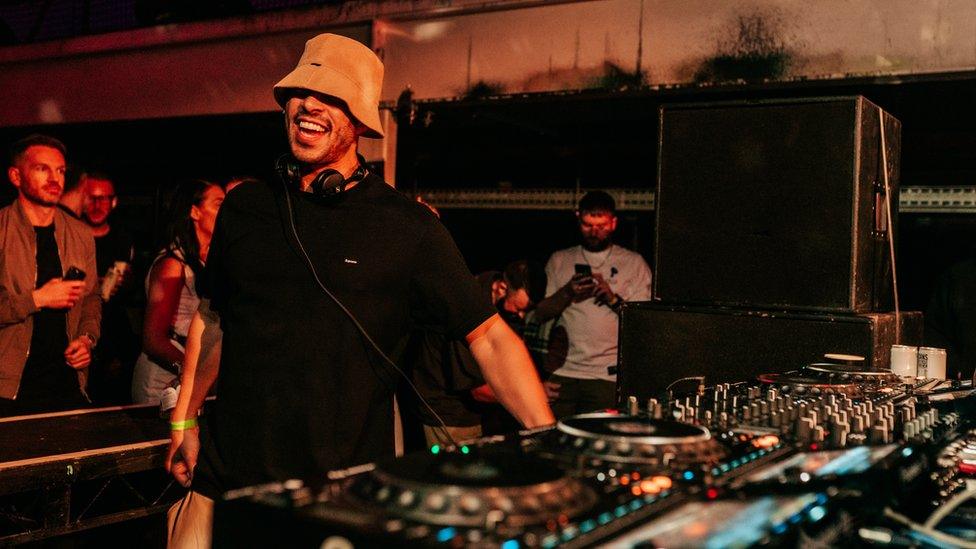
Melvo Baptiste has been DJing at Printworks for four years
"There's just a magic and an energy in that room - four years ago I played my first closing set here and I looked up at 6,000 people and it was terrifying."
He says losing the space is "heartbreaking" and worries about what it could mean for young clubbers just getting into dance music.
"Club environments are where you really find your tribe and meet friends, you don't do that in bars or restaurants as there's not that one common thing that's connecting everyone apart from alcohol," he says.
'Great friendships'
We find two partygoers in the crowd, Libby Minney and Andrew Bartha, both 25, who tell the BBC they became friends after meeting at Printworks.
"I've met so many friends here," says Ms Minney.
"It's especially sad to think in the future that's not going to happen," she adds.
Bartha calls the venue "a cultural institution" and says "it's given rise to a lot of great friendships and good memories".
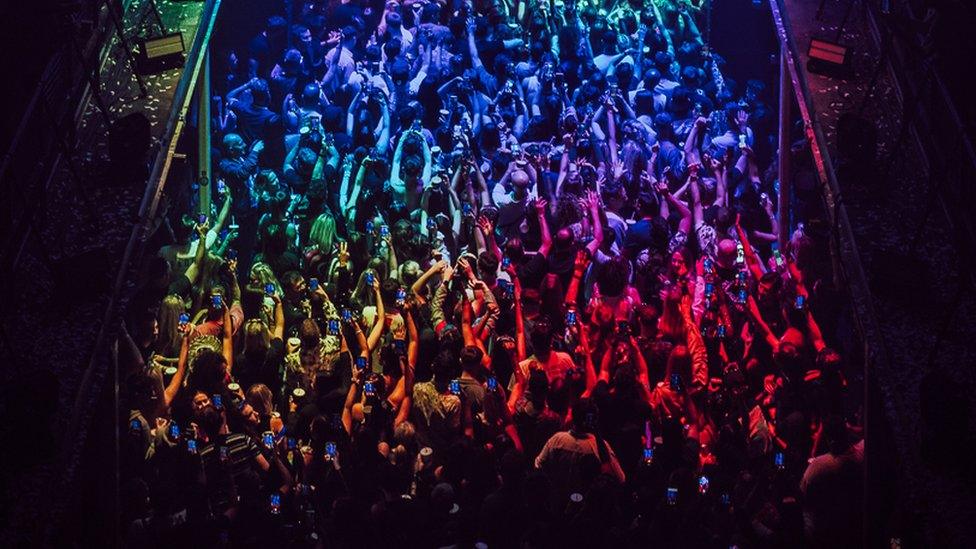
Printworks can hold 6,000 partygoers - making it one of the biggest clubs in the UK
"Printworks is one of the last big proper venues where when you come in, it feels like a proper rave," Minney adds.
Mr Bartha says what makes it special is "the great production - the lighting and graphics", which he says is missing in smaller clubs.
The pair might be too young to remember the illegal warehouse scene that developed in 1980s London, as an antidote to licensing laws that saw the city shut down at 3am. But that's not the case for all Printworks attendees - it has quite the reputation of attracting clubbers of all ages who want to remember the feeling of the rave.
This is echoed by some of club's performers who say what makes Printworks so special is its inclusive feel.
The venue has hosted every dance genre from drum and bass to house and techno, and it has also championed LGBT friendly events such as Sink The Pink and disco label Glitterbox.
"When you're up on that stage and you look out down at seas of thousands of people - it's the closest feeling you ever get to being a pop star," says transgender dancer Lucy Fizz.
"For all of us queer people, those who have been marginalised, to have that experience and be on a platform where we are celebrated for being our authentic selves - it's really amazing," she adds.
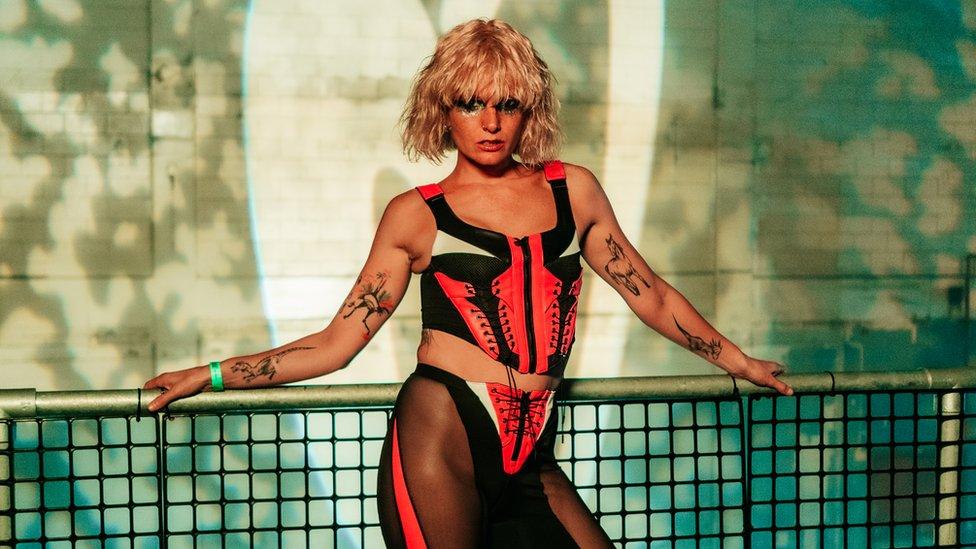
Lucy Fizz, a dancer for Glitterbox, hails Printworks as an inclusive space
Dancer and performer Te Te Bang calls the venue "the Olympics of nightclubs".
She adds: "It's like an adult playground, it really is a utopia where you're in this little bubble of music where everyone's really free to be themselves - there's nothing else like it in the UK".
'Massive challenges'
Simeon Aldred, who is one of the founders of Broadwick Live, says Printworks has been incredibly special for his team.
"It's our baby, we created it from scratch - to replicate it or find that anywhere else in the world is difficult," he tells the BBC.
Printworks' closure comes at a time when Britain has the lowest number of nightclubs on record and Mr Aldred says operating nightclubs is "pretty difficult" in 2023.
"The pandemic was pretty horrific, with two years of closure critical to us. Now the cost of living has hit us across the 26 venues we own and operate, and then power has gone up by millions of pounds across that portfolio," he says.
"There's also some massive challenges and inconsistencies around licensing and planning," Mr Aldred adds.
"You've got some councils that are really pro-culture and some that aren't".

Printworks is known for its imposing press halls that are 130 metres long.
The BBC has contacted the Department for Media, Culture and Sport, who declined to comment.
Mr Aldred says Printworks established itself as not only a London clubbing staple, but a national and even international attraction, evidenced by the relationship the venue owners have established with local hotels.
He says "one of the hotels next door [to Printworks] does an average of 100 rooms for every show" whilst their reinvigoration of the daytime clubbing scene has allowed for people to venture down to the capital for the day too.
"It's also really valuable to other venues nearby when we finish at 11pm," he adds.
"So people can go to after-parties at venues that have maybe been seen as competitors, but they're actually all friends because we are all part of one ecosystem".
Related topics
- Published2 August 2022
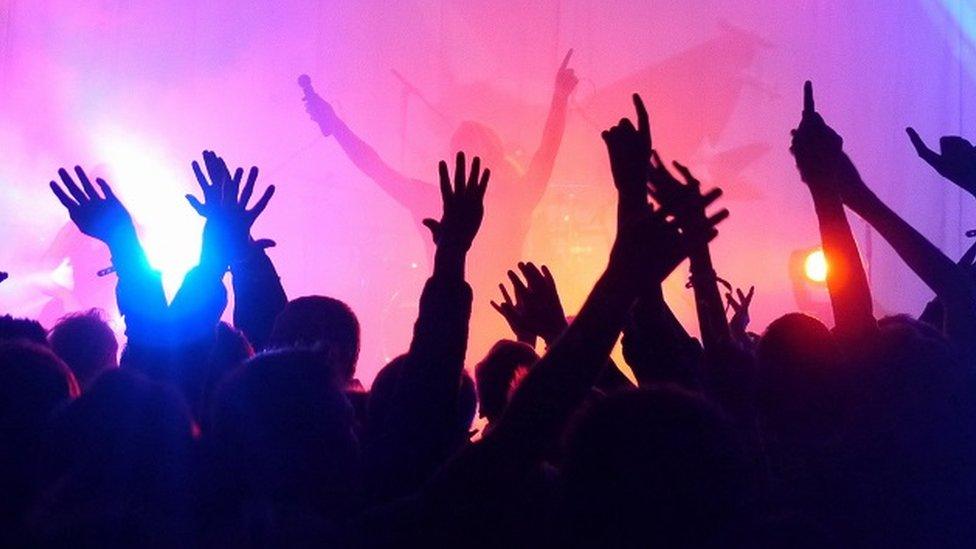
- Published27 October 2021
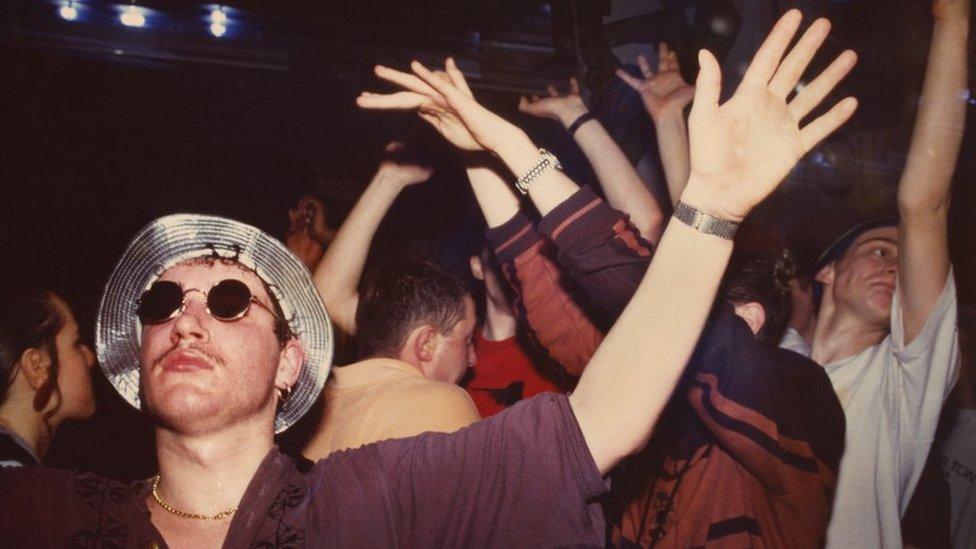
- Published19 June 2020
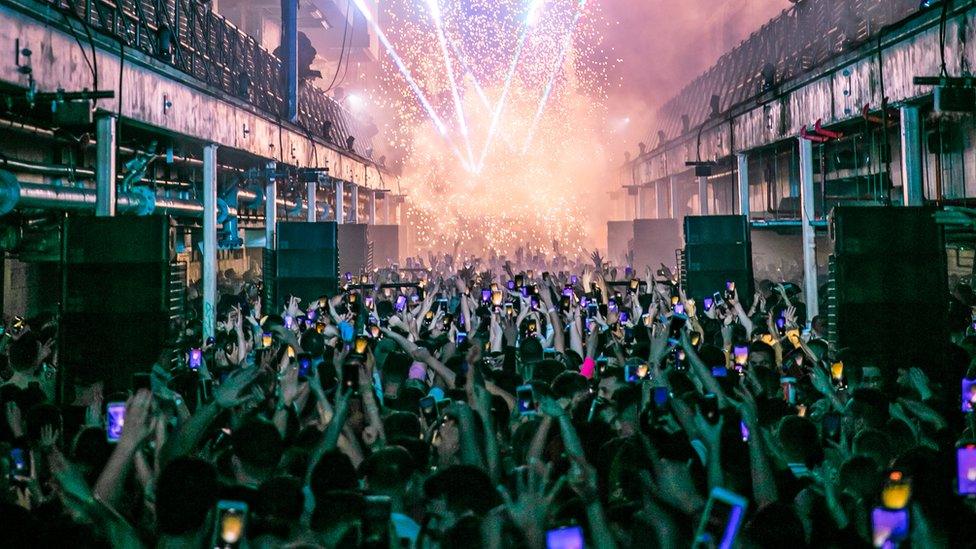
- Published20 September 2017
